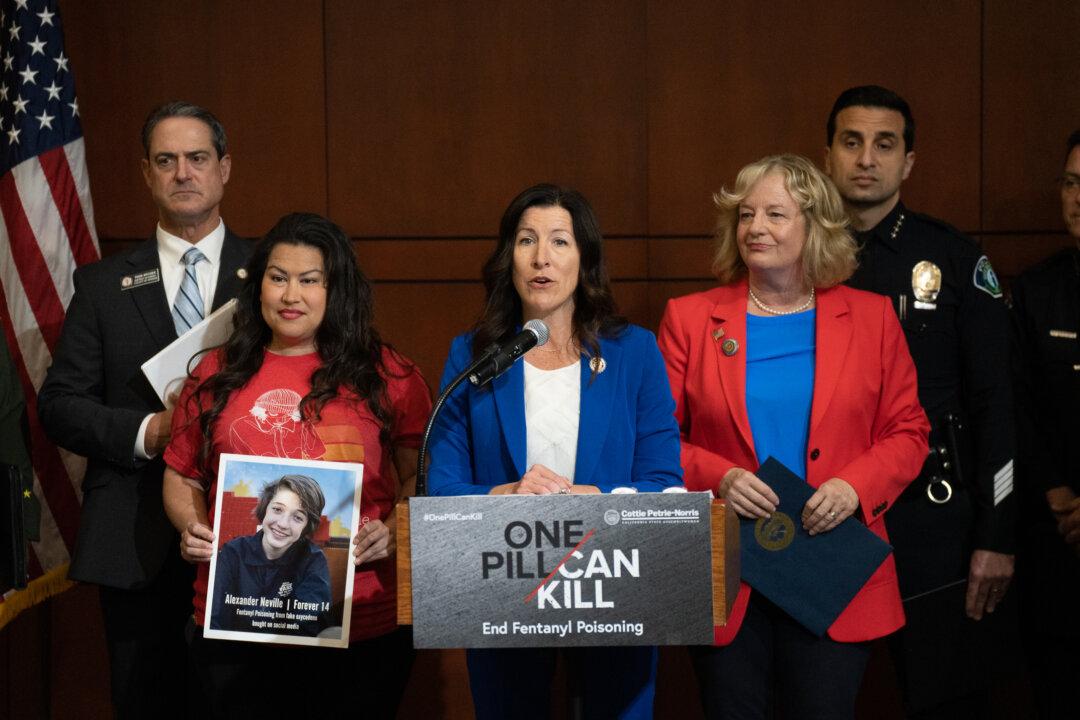State lawmakers are looking to target the online sale of drugs through social media platforms—and to help slow down the spread of fentanyl—by requiring greater transparency and accountability from social media platforms operating in California.
Assembly Bill 1027—introduced by Assemblywoman Cottie Petrie-Norris (D-Irvine)—would require such platforms to disclose their policies for keeping records of users’ online communication, specifically those flagged for drugs, and the sharing of such information related to drug distribution. The bill aims to help law enforcement agencies better combat the sale of illegal drugs online and “address [the] fentanyl crisis,” according to a July 6 press release from Ms. Petrie-Norris announcing the bill.





